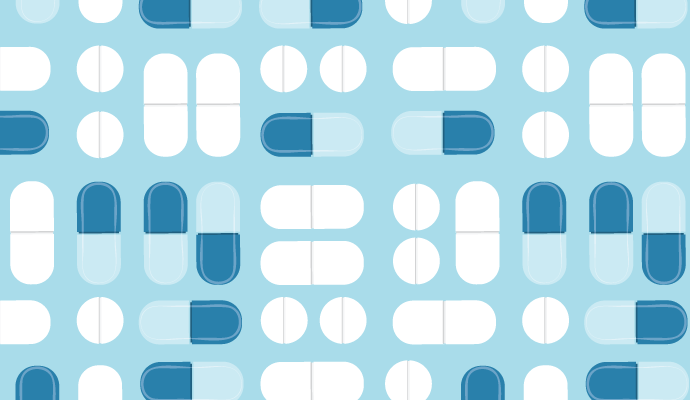Immunotherapy Combo from Bristol Myers Squibb Improves Survival
Bristol Myers Squibb’s drug showed a four-year survival rate of 50 percent in the longest follow-up for an immunotherapy-based combination in previously untreated advanced renal cell carcinoma.

Source: Getty Images
- Bristol Myers Squibb recently announced that more than half (53.4 percent) of advanced renal cell carcinoma patients treated with an immunotherapy combination of Opdivo (nivolumab) and Yervoy (ipilimumab) in a Phase 3 clinical trial were alive after four years.
The CheckMate-214 trial also found that, in contrast, the overall survival rate for standard care – sunitinib – was 43.4 percent.
This trial is the longest follow-up for an immunotherapy-based combination in previously untreated advanced renal cell carcinoma, researchers said.
In intermediate- and poor-risk patients, Opdivo plus Yervoy maintained improvements in overall survival and overall response rates, which were two of the trial’s co-primary endpoints.
The combination of the immunotherapies also showed a four-year overall survival rate of 50 percent, compared to 35.8 percent with sunitinib.
Opdivo showed a 65 percent overall response rate, while standard care, sunitinib showed a 50 percent overall response rate.
The drugs also improved complete response and median duration of response, which were exploratory endpoints.
Consistent with a previous analysis, 10 percent of patients treated with Opdivo plus Yervoy achieved a complete response, compared to one percent of patients treated with sunitinib.
Specifically, the median overall survival was 48.1 months for intermediate- and poor-risk patients treated with Opdivo plus Yervoy versus 26.6 months for sunitinib.
“Nivolumab plus ipilimumab was the first immunotherapy combination to demonstrate an overall survival advantage over sunitinib in intermediate- and poor-risk patients with advanced renal cell carcinoma,” said Laurence Albiges, MD, PhD, head of genitourinary unit at the Gustave Roussy Institute.
“Now, after four years, the durable efficacy seen in CheckMate -214 represents important progress towards the aim of changing survival expectations for these patients,” added Albiges who was also an investigator in the CheckMate -214 trial.
In a 48-month follow-up analysis of the overall patient population, median overall survival was not reached for all randomized patients in the Opdivo plus Yervoy group, compared to 38.4 months in the sunitinib group.
Additionally, 11 percent of patients who received Opdivo plus Yervoy achieved a complete response, compared to three percent of patients who received sunitinib.
Researchers noted that the safety profile of Opdivo plus Yervoy was manageable using treatment algorithms. Additionally, no new safety signals were found in the follow-up.
“We have now evaluated Opdivo plus Yervoy in multi-year Phase 3 trials across RCC, melanoma, non-small cell lung cancer and mesothelioma, and in all of these studies, we have seen improved survival compared to the existing standard of care,” said Nick Botwood, MD, vice president and interim head of the oncology development at Bristol Myers Squibb.
“The four-year results from CheckMate -214 build on our understanding of and leadership in addressing advanced RCC, reinforcing the potential for durable, long-term survival benefits with Opdivo plus Yervoy in the first-line setting. Taken as a whole, these data provide further evidence for the value of distinct but complementary dual checkpoint inhibition in the treatment of advanced cancers,” Botwood continued.
At the beginning of June, Bristol Myers received FDA approval for Opdivo 360 milligrams plus Yervoy 1 milligram to be administered with two cycles of platinum-doublet chemotherapy for patients with metastatic or recurrent non-small cell lung cancer.
The FDA approval was based on a pre-specified interim analysis from the Phase 3 CheckMate-9LA trial where both Opdivo and Yervoy, combined with platinum-doublet chemotherapy treatments, showed superior overall survival versus chemotherapy, Bristol Myers said.
The analysis found that median overall survival was 14.1 months versus 10.7 months, respectively. At one year, 63 percent of patients treated with the drugs and 47 percent of individuals treated with chemotherapy were still alive.
Similar to the positive findings of the CheckMate-214 trial, the findings from the CheckMate -9LA showed the benefit of combining dual immunotherapy with limited chemotherapy for NSCLC patients regardless of PD-L1 status.
This provides patients with extended access to an Opdivo plus Yervoy- based treatment option.
